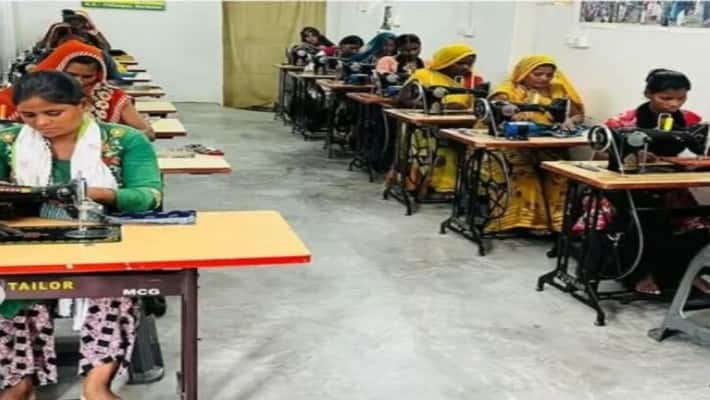IAS officer Akshat Verma in Varanasi, UP, transformed discarded clothes from the Ganges ghats into 100,000 eco-friendly bags, protecting the environment and providing employment to women. Discover the full story!
IAS officer Akshat Verma launched an innovative initiative to tackle pollution caused by discarded clothing along the sacred Ganges ghats in Varanasi, Uttar Pradesh, while also generating employment opportunities. Partnering with the Hope Welfare Foundation, he empowered local women by transforming these waste clothes into 100,000 eco-friendly bags. This project serves as a remarkable example of environmental conservation, women's empowerment, and plastic waste reduction.
1. Piles of Clothes on Varanasi Ghats – A Major Problem
Varanasi, considered one of the world's oldest and most spiritual cities, sees thousands of devotees leaving old clothes on the ghats after bathing in the Ganges every day.
These discarded clothes cause the following problems:
- The Ganges and the environment are polluted.
- Wildlife can accidentally eat these clothes and become ill.
- Cleaning the ghats becomes a major challenge.
- To transform this problem into a solution, IAS officer Akshat Verma devised a unique plan.
Also read: Goa’s First Zero-Waste Wedding: How this couple made their big day eco-friendly
2. IAS Officer Akshat Verma's Brilliant Solution
IAS Akshat Verma, in collaboration with the Hope Welfare Foundation and a women's self-help group called 'Green Army,' planned to convert these waste clothes into handmade eco-friendly bags.

- 50+ rural women gained employment
- 100,000 bags were made and distributed
- Ghats were cleaned, and plastic pollution was reduced
- This initiative, which began in December 2023, not only cleaned the ghats but also made women self-reliant.
3. How Were 100,000 Eco-Friendly Bags Made?
- Discarded clothes were collected
- Women from the 'Green Army' sewed them into bags
- These bags were distributed free of charge to local shopkeepers and the general public
- This significantly reduced the use of plastic bags
- This also cleaned the ghats and prevented waste from going to landfills.
4. Major Benefits of This Initiative
- Environmental Protection: Cleaning of Ganges ghats and reduction in plastic pollution
- Job Creation: 50+ women were economically empowered
- Alternative to Plastic Bags: 100,000 eco-friendly bags were distributed
- Promoting Sustainability: A new product was created by reusing waste
